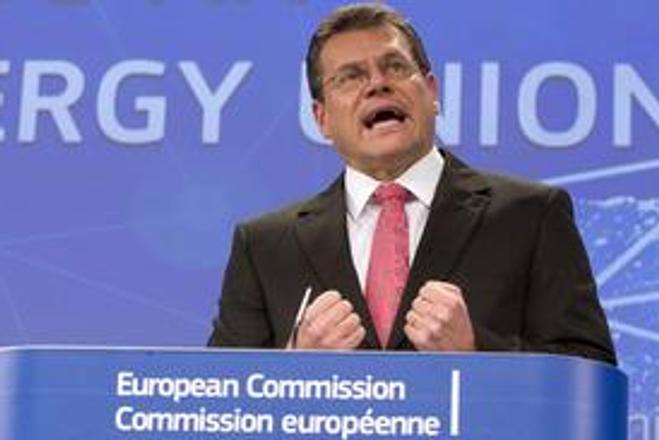In June 2014 the European Union committed to moving towards an Energy Union in order to provide secure energy for all EU countries, affordable energy for companies and citizens, and make Europe a global leader in renewable energy. The UK welcomes the Commission’s Communication of 25 February setting out their strategy for the ‘resilient Energy Union with a forward looking Climate Change Policy’. This is an important next step to delivering the EU reform needed to strengthen Europe’s energy security, decarbonise cost-effectively and deepen the internal energy market.
Having a fully functioning internal energy market that delivers secure, competitive and sustainable energy to EU companies and consumers is vital for the economic growth of the EU. It will also help the EU to reach its climate goals, including the 40 percent reduction in the EU’s domestic greenhouse gas emissions by 2030. The EU must continue to demonstrate leadership to help reach a global climate agreement at the UN Climate Change Conference in Paris in December 2015 that delivers fair and ambitious commitments from all countries, keeping the Co2 target in reach.
However, the sheer scale of the challenges ahead means countries must be able to draw on the full range of low and lower carbon technologies to deliver this secure, low carbon and competitive energy, including renewables, energy efficiency, nuclear, CCS and gas. We cannot expect to meet these challenges without an Energy Union that supports a flexible approach to EUMS’s energy mix, including the use of nuclear energy.
It is essential that the Energy Union strengthens the EU’s energy security. We have seen in recent years how non-EU countries have used, or threatened to use, their position as an energy supplier to exert political pressure on the EU. We need to ensure that this does not happen in future by putting in place greater transparency around energy agreements and, where appropriate, helping member states in their negotiation of gas and other contracts. By improving the energy infrastructure and maximising supply diversity (including development of LNG terminals and exploitation of all available energy sources) we can help minimise the chances that the EU will again suffer damaging energy shortages.
The Energy Union should support regional approaches where there are particular regional challenges or opportunities or where acting regionally can pilot new approaches on a smaller scale, for example the North-South Gas Corridor in Central and Eastern Europe. The EU Commission has an important role to play in enforcing existing EU legislation to ensure the opening of energy markets to competition and external sources to deliver a functioning market.
The Energy Union can help improve energy efficiency, for example on energy performance standards and labelling for energy using products. It is important though that this is done without over-prescriptive legislation and that the Energy Union allows EU member states to determine best how to promote energy efficiency within their countries.
Finally, the EU must increase effort on low carbon innovation to in order to meet 2030 climate objectives cost-effectively and make progress towards its goal of reducing emissions by 80-95 percent by 2050. Innovation in this area can reduce energy generation costs and reduce energy demands.
This is a hugely ambitious project. But done correctly it will set the EU’s energy policy for the foreseeable future and bring long term benefits to both businesses and citizens. We look forward to working together on this agenda with the Slovak government and Commissioner Maroš Šefčovič.
By Andy Garth, UK Ambassador to Slovakia


 Commissioner Maroš Šefčovič (source: AP/SITA)
Commissioner Maroš Šefčovič (source: AP/SITA)